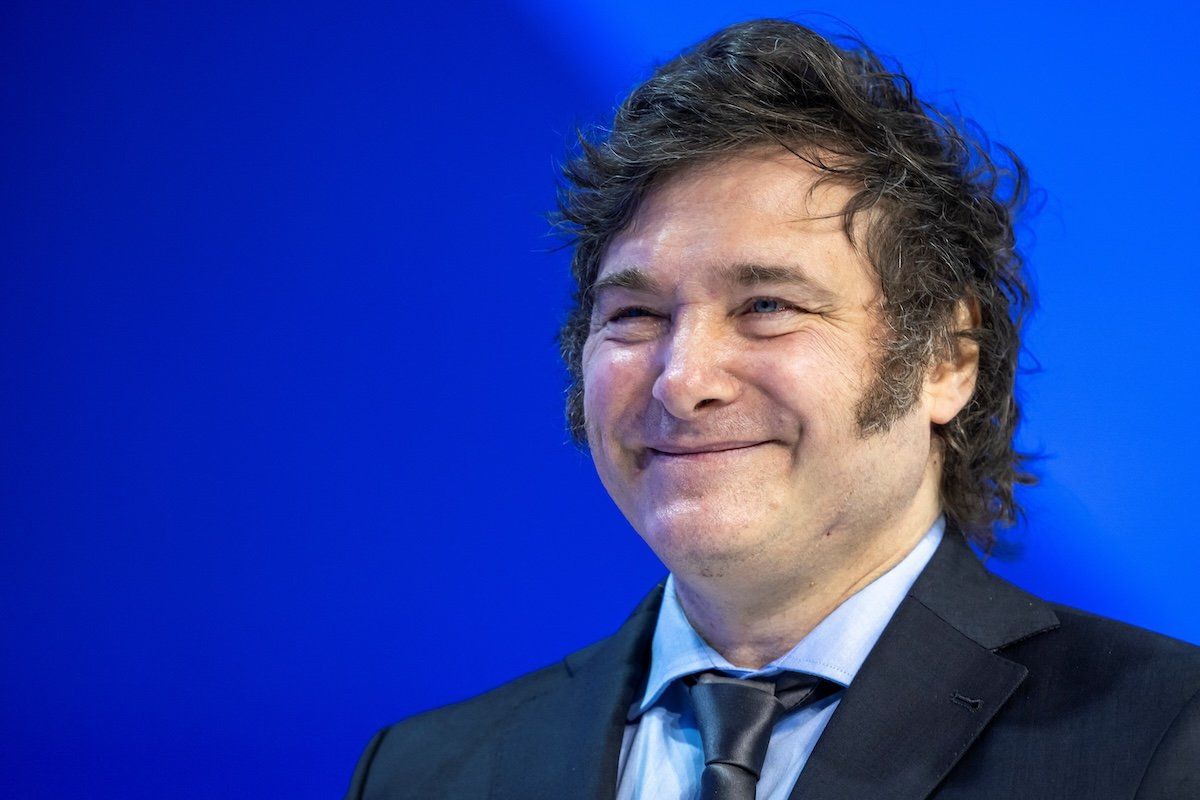Javier Milei’s first foray onto the international stage wasn’t so much to deliver a maiden speech as to give a “brazen hussy of a speech,” to use Winston Churchill’s memorable phrase.
The newly elected Argentinian president blazed into Davos like a comet and delighted libertarians around the world with his unabashed advocacy of free markets. He concluded with a rallying cry for the world’s wealth creators: “Long live freedom, dammit!”
The Western world is facing a significant threat because its leaders have been coopted by socialism, which leads to poverty and economic deprivation, he said. Motivated by good intentions, or the desire to belong to a “privileged caste,” leaders have abandoned the model of freedom for different versions of collectivism.
“We are here to tell you that collectivist experiments are never solutions to problems that affect citizens,” he said. “Trust us, no one is better than us Argentinians to provide testimony on these issues.”
Milei was elected to power at a time when inflation in Argentina is running at 140% annually and GDP is forecast to shrink 2.5% this year. The South American country defaulted on its debt in 2020. Milei has promised radical reforms, including deregulation and devaluation of the currency.
There was no evidence that he is prepared to dilute his agenda in his speech in Davos on Wednesday.
Social justice is not just, he said, and does not contribute to the well-being of the country. The state is financed by coercion, in the form of taxes. “The higher the tax burden, the higher the coercion.”
Milei outlined his version of libertarianism as comprising private property markets free from state intervention, regulation, and “the radical feminist agenda.”
He was scathing about “neo-Marxists” who have “coopted the common sense of the Western world” when it comes to the climate change agenda. “Fortunately, there are more and more of us who are daring to make our voices heard because we see that if we don’t truly, decisively fight against these ideas, the only possible fate is for us to have increasing levels of state regulation, socialism, poverty, and less freedom, and therefore worse living standards.”
“The market is a discovery process in which capitalists will find the right path as they move forward,” he continued, arguing that states should not interfere in the discovery process of capitalists. Punishing them “will produce less, and the (economic) pie will be smaller,” he said, calling successful entrepreneurs “social benefactors” for contributing to society’s well-being. “Ultimately, a successful entrepreneur is a hero.”
Perhaps not surprisingly, this argument had Davos billionaires rattling their Rolexes in agreement.
